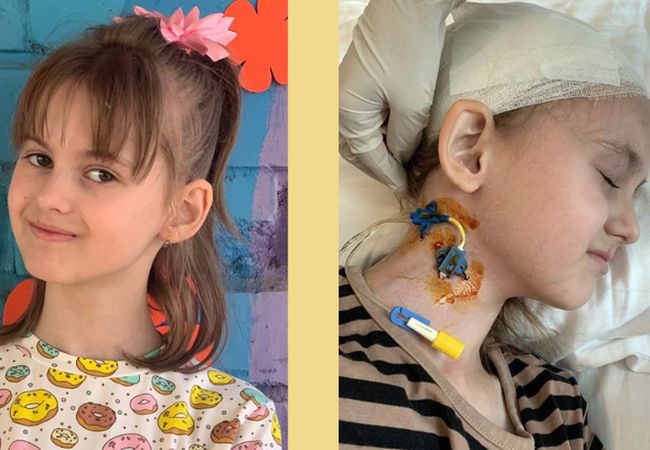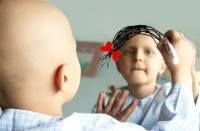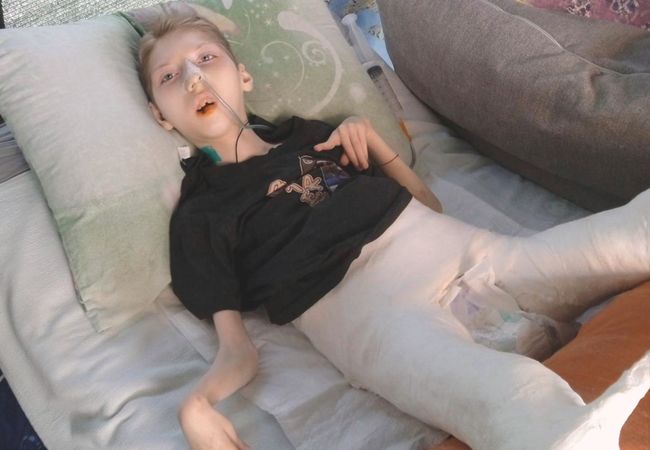LONGMONT — The summer camp was anything but typical.
The kids went camping near Cameron Lake. They attended a Colorado Rockies game. They watched SpongeBob.
What they loved most, though: family.
While most American kids head off to summer camp to have fun away from their families, these children experienced what it meant to be part of one.
These are orphaned children from Ukraine, an Eastern European democracy struggling with unemployment, addictions, suicide, crime, violence and abuse. Through a new area nonprofit, these six boys and two girls tasted the good life, a reprieve from the state-run orphanage where they live in the small village of Stara Zburivka close to the Black Sea.
Ukraine Orphan Outreach is the brainchild of Berthoud residents Kris and Clarke Stoesz.
The couple have two teenage biological children and three younger children adopted from Ukraine. They said the nonprofit is a mentor and support group for families considering adopting and those who are in the process of adopting children specifically from Ukraine.
“We are not an adoption agency; we are an advocacy group,” Clarke Stoesz said.

Vasyl “Vasya” Densa is teased and provoked by a group of girls in the chance that he might chase them around the living room at the home of Clarke and Kris Stoesz in Mead last month. “The Ukrainian kids love it when there are siblings in the house,” Kris said. Although the American homes and fun adventures are impressive, the Ukrainian youth are most hungry for individualized attention and affection
Together with three other Northern Colorado families, the organization held the camp for three weeks starting July 28. The eight children and two chaperones arrived at DIA after a 16-hour flight with two suitcases, one for the adult chaperone and one for her teenage daughter, a translator.
The children spoke only Ukrainian and Russian and had only the clothes on their backs. At the state-run home, the children share their possessions — clothing, shoes, toys. Nothing is just theirs.
According to orphan organizations, Ukraine has more than 100,000 orphans, most of which live in state-run orphanages or on the streets. Only 10 percent are orphaned due to the death of parents; the rest are “social orphans” who are without guardians because of addiction, abandonment, imprisonment, abuse, violence, crime, poverty and neglect.
Children graduate from these public institutions by the age of 15 or 16 and are turned out on their own. Ten percent will commit suicide by their 18th birthday. Sixty percent of the girls end up in prostitution and 70 percent of the boys enter a life of crime; the employment rate hovers at 27 percent.
The camp plans to host children between 8 and 15 years old; these campers were 10 to 12 years old, said the Stoeszes.
“Everyone starts out thinking they want a baby when they want to adopt, but being involved with the older kids changed my mind,” said Heidi Roge, a Longmont resident who with her husband, Felix, hopes to adopt multiple children from Ukraine.
They, along with Jim and Kari Volf of Longmont and Loveland residents Eric and Angie Carman, helped host the campers last month. Ukraine Orphan Outreach held its first camp in December with 17 kids.
All three families are in stages of adopting multiple, older children from Ukrainian orphanages. Some are empty nesters, some are ready for first-time parenthood.
“I have an adopted sister, and (my wife) has an adopted brother, and we always said that if adoption falls into our lap, we’ll pursue it,” said Eric Carman, who with Angie has three young biological children and is pursuing adopting siblings in Ukraine.
The group hopes to host more camps and will hold fundraisers through April; it costs about $2,200 per child for the camp, Clarke said. The children are chosen based on their ages, health, good behavior and adoption availability.
The group also held outreach events in Northern Colorado to talk about members’ experiences with adoption with local churches and held a benefit community dinner.
Adoption isn’t for everyone, but the Stoeszes said people can help by hosting campers, donating goods or money or even becoming a pen pal when the children return to Ukraine.
They returned to Ukraine with more than 19 suitcases stuffed with donations of clothes, shoes, toys, blankets and school supplies. The children, with the help of volunteers, also created scrapbooks to keep their memories of Northern Colorado.
Vanya, a 12-year-old cowboy at heart, didn’t want to cut any of the photos he placed in his book.
“I want them whole,” he told a translator as he stuffed pictures into their plastic sleeves.
Lona, a stoic, quiet girl whose addicted mother took her from the orphanage only to leave her malnourished in an abandoned building where police discovered her earlier this year, placed her pictures of dolls and housecats and covered them with stickers of fairies and bunnies.
“They know what it is to dream and what they want in their lives. This changes their mind. They become more and more free,” said chaperone Natasha Andriets, assistant director at the orphanage.
Some ask the organization why they bring the children to the United States to shower them with love and attention, only to return them to Ukraine. And though the kids might be impressed with the “shock value” of a few weeks of sightseeing the American culture, the Stoeszes say what the children craved most was individual attention and affection.
“Why not give them love for a week or two ... give them hope? It’s something tangible, I think. They’ve experienced something true. That life can be like this. Relationships can be like this,” said Clarke Stoesz.
They say campers return to their orphanages with more self-esteem and bigger goals, emerging as leaders for other orphans who do not know the possibilities outside Ukraine.
For some, the trip can end up in adoption, though the process takes up to 18 months and costs upwards of $25,000. There are tax rebates available, the Stoeszes said.
But they warn Ukraine does not guarantee a camper will be available for adoption.
Families are presented possibilities of adoptees, each with a one-page bio and small photo, during an initial meeting with the State Department of Adoptions.
Families undergo a home study, which can take up to nine months, and then paperwork is collected and sent to Ukraine where it is documented and translated, which can take at least six months. Then families will receive an appointment date, usually a few months after the adoption is approved.
During the trip to Ukraine, families meet the child and decide if the match is good. If not, the second attempts are much, much harder, they said.
The point, the Stoeszes say, is to not love a specific child, but to fall in love with the idea of having a child.
“We want people to see and think ‘These are normal kids. These are kids I could love,’” Clarke Stoesz said.



